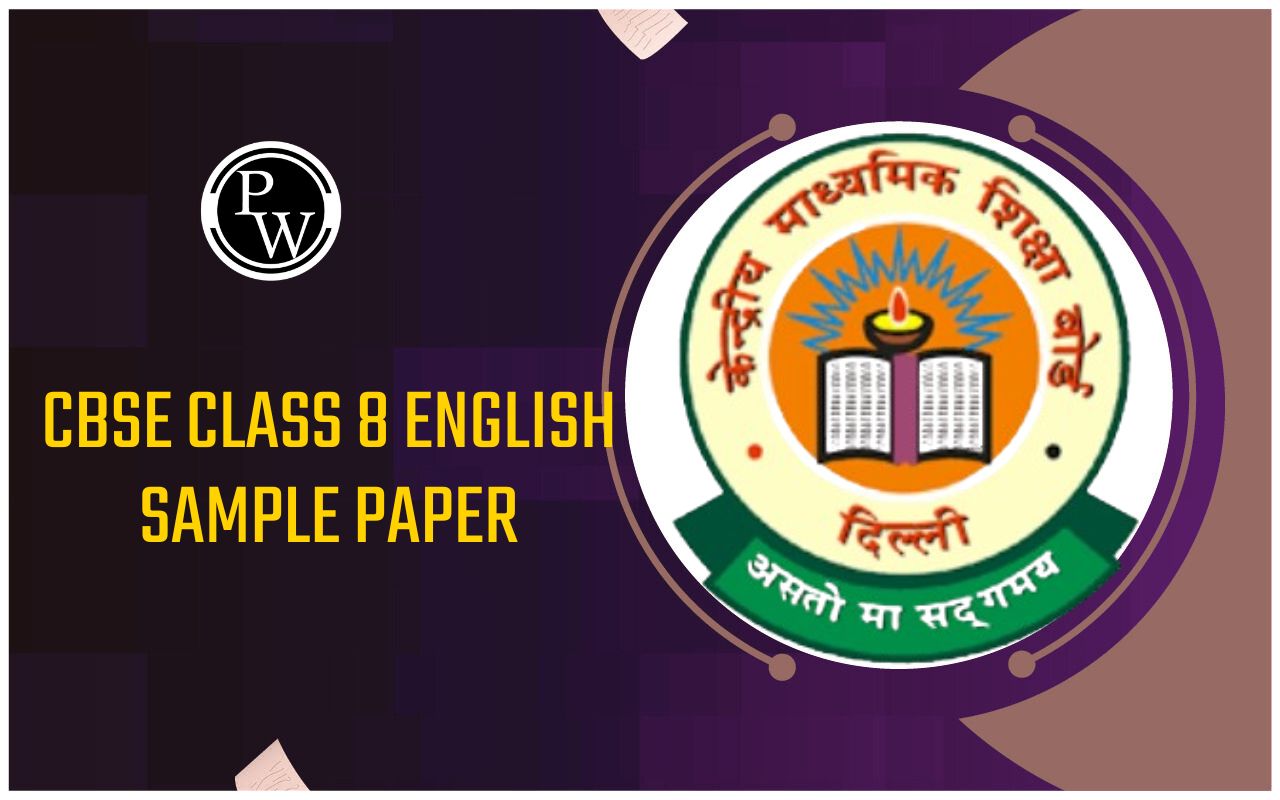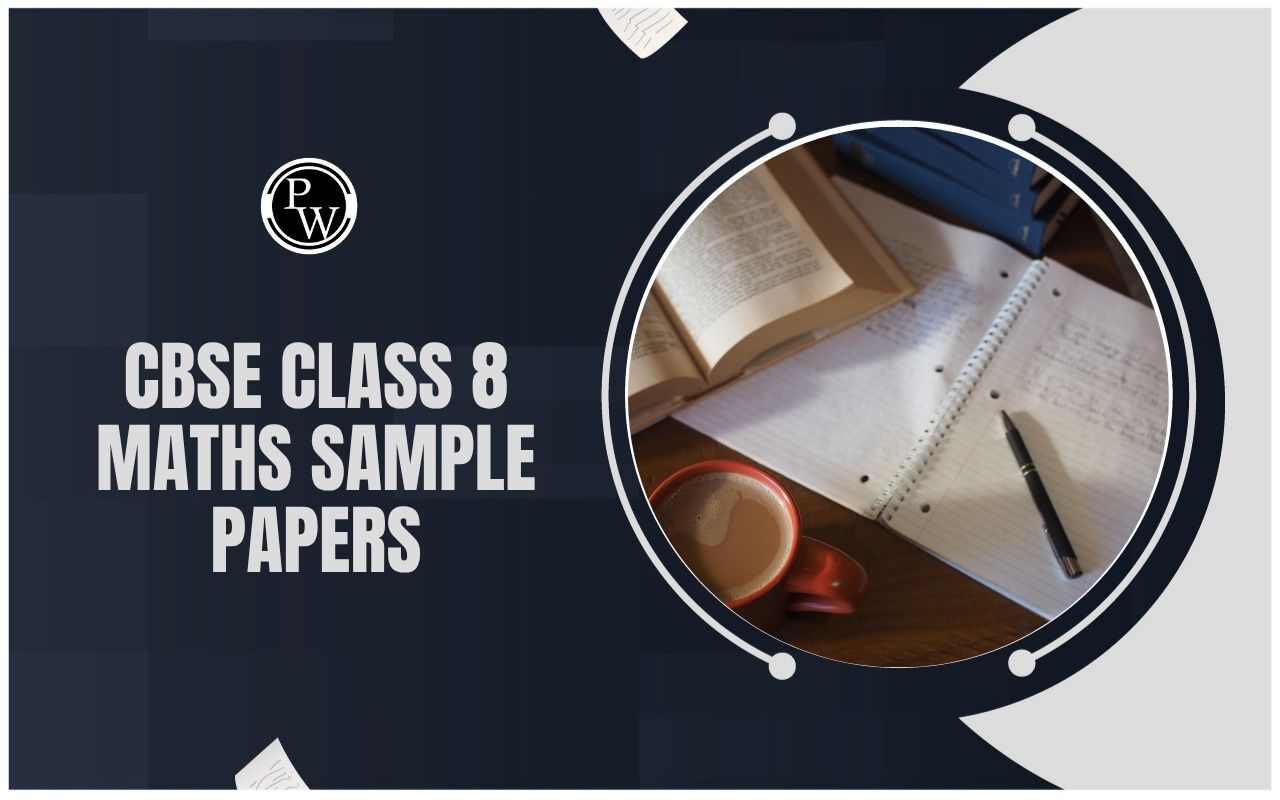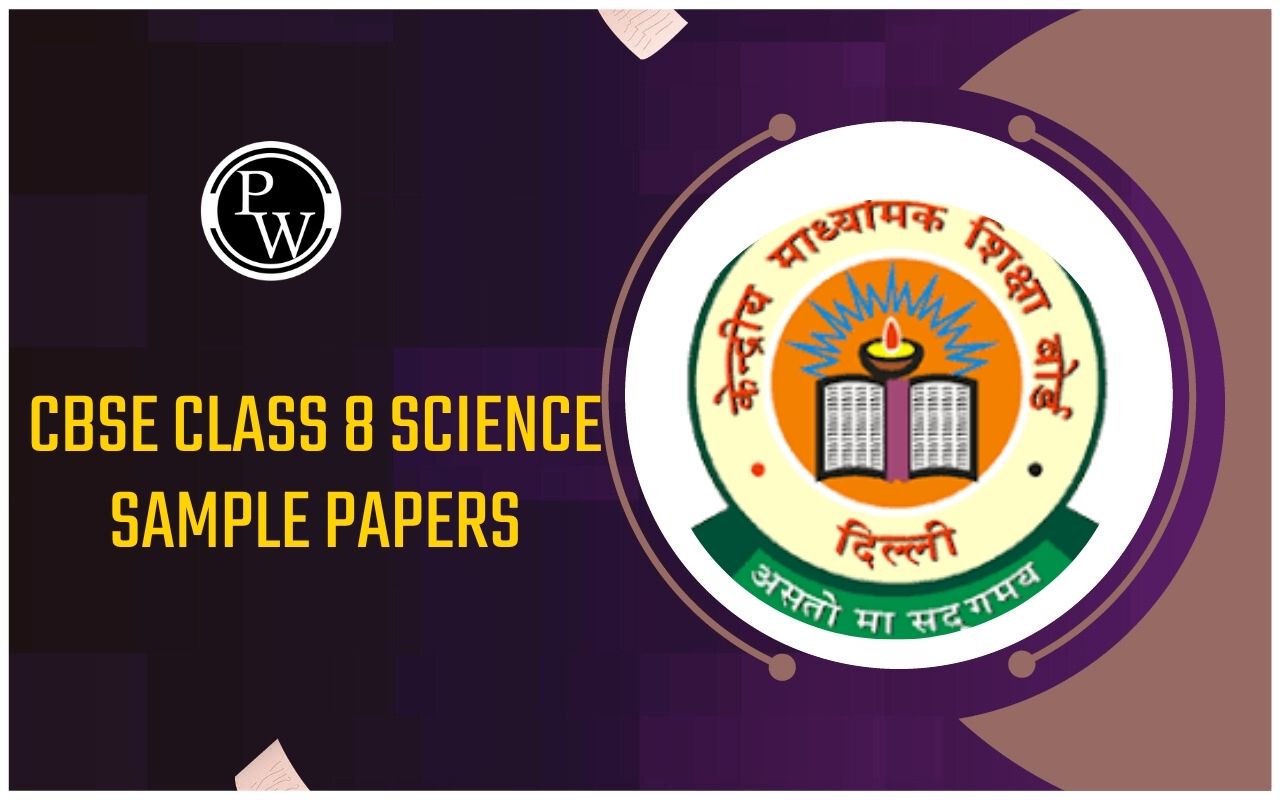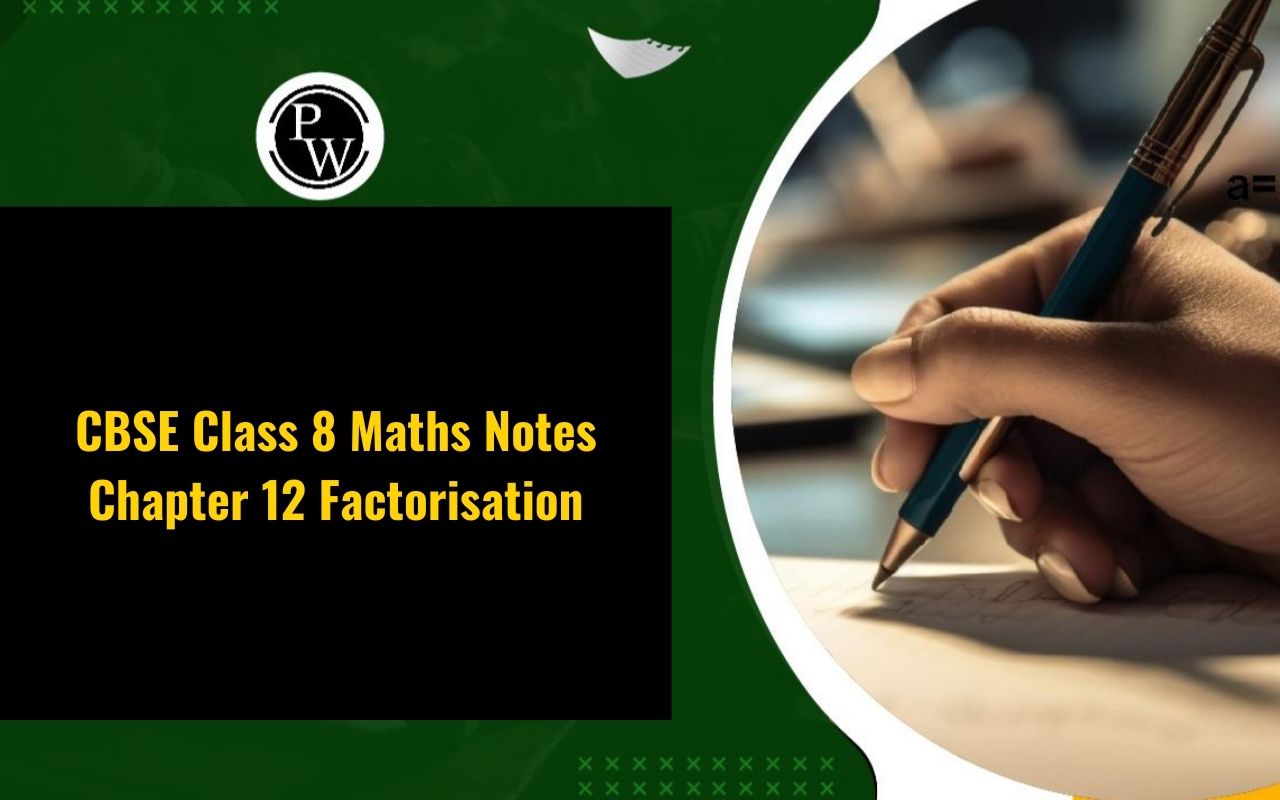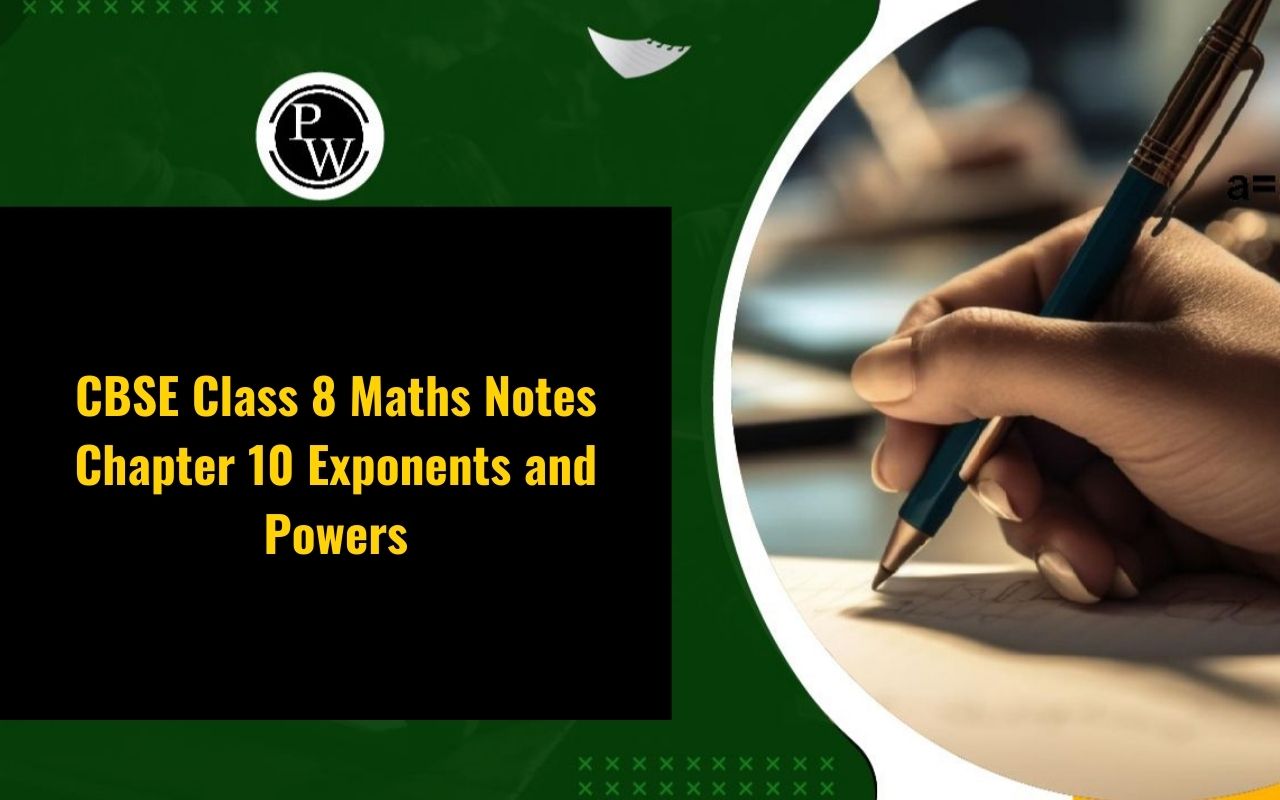
CBSE Class 8 Science syllabus for the academic year 2025-26 is designed to promote scientific curiosity among students while providing a solid foundation in various scientific disciplines.
The syllabus covers a diverse range of topics, from understanding the natural world and biological processes to exploring physical laws and chemical phenomena. Below is a detailed breakdown of the CBSE Class 8 Science syllabus for 2025-26:
CBSE Class 8 Science Syllabus 2025-26
CBSE Class 8 Science syllabus for the academic year 2025-26 is created to provide students with a comprehensive understanding of various scientific concepts. It includes topics from different branches of science—biology, physics, and chemistry—encouraging students to explore and analyze the natural world. Below is a overview of the chapters covered in the syllabus:
|
CBSE Class 8th Science Syllabus 2025-26 |
|
|
Chapter No. |
Unit |
|
Chapter 1 |
Crop Production and Management |
|
Chapter 2 |
Microorganisms: Friend and Foe |
|
Chapter 3 |
Coal and Petroleum |
|
Chapter 4 |
Combustion and Flame |
|
Chapter 5 |
Conservation of Plants and Animals |
|
Chapter 6 |
Reproduction in Animals |
|
Chapter 7 |
Reaching the Age of Adolescence |
|
Chapter 8 |
Force and Pressure |
|
Chapter 9 |
Friction |
|
Chapter 10 |
Sound |
|
Chapter 11 |
Chemical Effects of Electric Current |
|
Chapter 12 |
Some Natural Phenomena |
|
Chapter 13 |
Light |
CBSE Class 8 Science Syllabus 2025-26 Chapter-wise Overview
CBSE Class 8 syllabus for the academic year 2025-26 is created to give students a well-rounded understanding of science concepts, combining theory with practical applications. Covering topics in biology, chemistry, and physics, this syllabus aims to spark curiosity and help students grasp the fundamentals of the natural world. Here's a detailed chapter-wise breakdown:
1. Crop Production and Management
This chapter introduces students to the basics of agriculture. They’ll learn how crops are grown, including soil preparation, sowing, irrigation methods, and crop protection. The focus is on understanding the importance of sustainable agricultural practices to meet the growing demand for food.
2. Microorganisms: Friend and Foe
In this chapter, students explore the world of microorganisms, learning about their helpful and harmful roles. Microorganisms assist in processes such as fermentation and nitrogen fixation, but they can also cause diseases. The chapter highlights the importance of hygiene and vaccinations in maintaining health.
3. Coal and Petroleum
This chapter deals with non-renewable resources like coal and petroleum, explaining how they are formed, their extraction, and their role in our daily lives. It also addresses the environmental challenges posed by the use of fossil fuels and highlights the need for cleaner, sustainable energy sources.
4. Combustion and Flame
Students explore the process of combustion, understanding how fuel burns in the presence of oxygen. They’ll learn about different types of combustion (complete and incomplete), the structure of flames, and how combustion is applied in various day-to-day activities.
5. Conservation of Plants and Animals
This chapter emphasizes the importance of protecting our biodiversity. Students learn about endangered species, conservation methods such as wildlife sanctuaries, and the role humans play in preserving plants and animals to maintain ecological balance.
6. Reproduction in Animals
Here, students will explore the reproductive processes in animals, including sexual and asexual reproduction. They will learn how animals reproduce, the role of fertilization, and the development of embryos into young ones.
7. Reaching the Age of Adolescence
Adolescence is a period of physical and emotional changes. In this chapter, students will understand the physiological changes during puberty, including hormonal fluctuations and growth patterns. It also highlights the importance of maintaining a healthy lifestyle during this stage.
8. Force and Pressure
This chapter introduces the concept of force—what it is, how it works, and the different types of forces. Students will explore how force affects the motion of objects and how pressure is calculated, with applications in daily life, like hydraulic systems.
9. Friction
Friction is the force that resists motion. Students will learn about the different types of friction, such as static, sliding, and rolling. The chapter will cover how friction affects everyday activities and its role in machines, along with ways to reduce or increase friction when needed.
10. Sound
In this chapter, students will learn how sound is produced and how it travels through various media like air, water, and solids. They'll study sound waves, pitch, frequency, and the properties of sound, as well as its uses in communication and entertainment.
11. Chemical Effects of Electric Current
This chapter introduces students to the chemical effects caused by electric current. Students will learn about electrolysis, electroplating, and electrorefining, understanding how electric current can be used to produce chemical changes in substances.
12. Some Natural Phenomena
This chapter covers exciting natural phenomena such as lightning, earthquakes, and volcanic eruptions. Students will learn about the science behind these events, the causes, and how they affect the environment, with a focus on how static electricity plays a role in lightning.
13. Light
The chapter focuses on the properties of light, such as reflection, refraction, and dispersion. Students will explore how light behaves, the formation of rainbows, and how lenses work in optical instruments like magnifying glasses and microscopes.
CBSE Class 8 Science Syllabus 2025-26 PDF Download
You can download the CBSE Class 8 Science Syllabus for 2025-26 from the below. The syllabus provides a detailed overview of all the chapters, topics, and concepts that will be covered in the academic year. To access the syllabus, click on the download link below:
CBSE Class 8 Science Syllabus 2025-26
Study without using the internet
Benefits of Using CBSE Class 8 Science Syllabus
- The syllabus explains science topics in a simple way, so students can learn without confusion.
- Chapters are arranged from basic to advanced levels, helping students learn in a proper order.
- It helps teachers plan lessons and choose the right books and materials for learning.
- Students learn to observe, ask questions, and do simple experiments, which builds scientific thinking.
- It builds a strong base in science, which is useful for learning tougher topics in higher grades.
CBSE Class 8 Science Syllabus 2025-26 FAQs
Is there a practical component in the Class 8 Science syllabus?
How does the CBSE Class 8 Science Syllabus help with future studies?
Are there any chapters related to human biology?
How does the syllabus encourage critical thinking?

